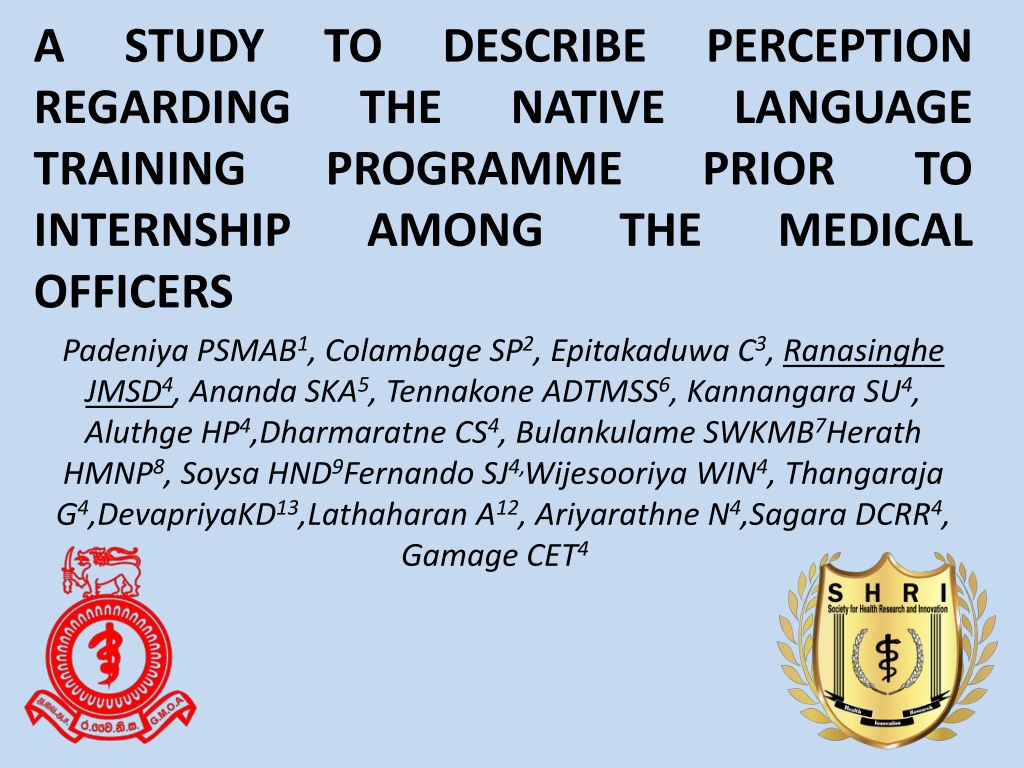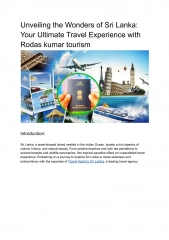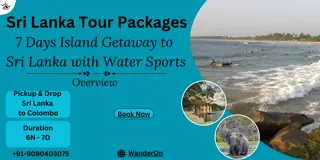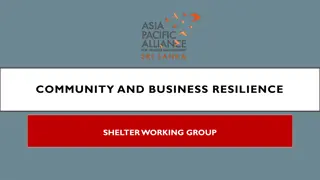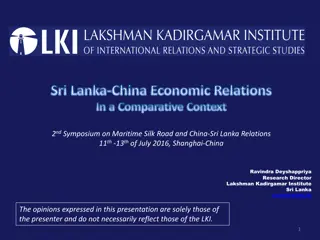Language Proficiency Among Post-Intern Medical Officers in Sri Lanka
Sri Lanka being a multi-lingual country, effective communication in both Sinhala and Tamil is crucial for post-intern medical officers. This study describes the self-perceived language proficiency and alternative communication methods due to lack of proficiency. Results reveal the challenges faced by medical officers in conversing with patients in a second language.
Download Presentation

Please find below an Image/Link to download the presentation.
The content on the website is provided AS IS for your information and personal use only. It may not be sold, licensed, or shared on other websites without obtaining consent from the author. Download presentation by click this link. If you encounter any issues during the download, it is possible that the publisher has removed the file from their server.
E N D
Presentation Transcript
A REGARDING TRAINING INTERNSHIP OFFICERS Padeniya PSMAB1, Colambage SP2, Epitakaduwa C3, Ranasinghe JMSD4, Ananda SKA5, Tennakone ADTMSS6, Kannangara SU4, Aluthge HP4,Dharmaratne CS4, Bulankulame SWKMB7Herath HMNP8, Soysa HND9Fernando SJ4,Wijesooriya WIN4, Thangaraja G4,DevapriyaKD13,Lathaharan A12, Ariyarathne N4,Sagara DCRR4, Gamage CET4 STUDY TO DESCRIBE THE PROGRAMME AMONG PERCEPTION LANGUAGE PRIOR MEDICAL NATIVE TO THE
Introduction Sri Lanka is a multi-lingual country. Most of the first on-call doctors are Intern House officers 70% of the medical diagnosis is based on History Quote from Nelson Mandela
If you talk to a man in his own language, it goes to his heart. Doctors should talk to patients heart It is essential that the intern medical officers communicate effectively in both Sinhala and Tamil languages.
Objective To describe the self-perceived level of proficiency To identify the perception To identify the alternative ways in conversing with patients due to lack of proficiency in second language Among the group of post intern medical officers
Method A descriptive Cross sectional study 775 Post intern doctors attending the Native Language Training Programme after completion of internship. Study period from June 2016 to June 2017. A pre-tested, self-administered Google form based online questionnaire was used.
Results N- 775 post interns were included. 73.3%- NO training in Tamil language prior to internship (NO language training before) 59% - Cannot speak nor understand Tamil language
The alternative Methods used to communicate with such patients? The alternative Methods used to communicate with such patients? 1%1% Alternative Method Percentage 7% Bye stander 91% Sign language 7% Proceed without Ex 1% Get senior to manage 1% 91% Bye stander as translator Proceed to Examination without history Sign Language Get seniors help to manage
Perception about the course What kind of course is prefered? 1% 10% Course Percentage 5% Residential training 84% Distance online 5% Part time 10% Other 1% 84% Residential training Distance online course Part time course Other
Perception about the course What kind of course materials is prefered? 7%3% Material preferred Percentage Audio visual 48% 48% Booklets 42% 42% Web site 7% CD 3% Audio-visual Booklets Web site CD
Conclusion Majority of the post interns who did not undergo the native language training program prior to internship has low Tamil language competency and it affects the patient management. A residential native programme with audio-visual course material is preferred by the majority. language training
Conclusion A comprehensive, language program before the commencement of medical internship would be beneficial for the patient care. well-planned native
